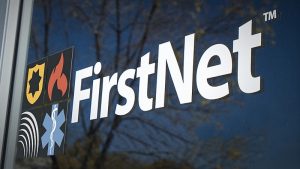State and local government transportation authorities are experiencing a historic moment of change. After the pandemic decimated revenues for transit and transportation, state and local leaders now have a once-in-a-generation opportunity to invest in transportation, thanks to funding from the $1 trillion Infrastructure Investment and Jobs Act (IIJA).
Students at California’s San Jose State University (SJSU) no longer have to wait in line to pay for their sushi or poke bowls. SJSU announced that it has converted its on-campus dining location, Ginger Market, into a fully autonomous retail experience. That means students, faculty, and staff can grab the items they want and go, without having to scan anything or wait in line to pay.
The University of Washington (UW) announced Andreas Bohman as its new chief information officer (CIO) and vice president of UW Information Technology (UW-IT).
Over the last year, the Federal government has allocated billions in funding to help close the digital divide nationwide. Multiple Federal entities, including the Treasury Department and the National Telecommunications and Information Administration (NTIA), have been tasked with overseeing the allocation of Federal funds.
New York City Mayor Eric Adams and New York Governor Kathy Hochul, along with the mayors of Albany, Buffalo, Rochester, Syracuse, and Yonkers, unveiled the new Joint Security Operations Center (JSOC) to bolster New York State’s ability to combat cybersecurity threats and attacks.
The COVID-19 pandemic and the sudden need for digital service delivery exposed gaps in the technology capabilities of state and local governments, which struggled to meet constituents’ needs during a time of crisis. In the wake of the pandemic, citizens continue to demand a more customer friendly experience when accessing critical government services. To keep pace, state and local governments are accelerating modernization efforts and looking to emerging technologies to build a digital government, where processes and services are fully connected and automated to deliver timely, responsive citizen services.
The Government Accountability Office (GAO) is getting an early start on reminding Congress that the First Responder Network Authority – which oversees a contract under which AT&T is building out a nationwide broadband network for first responders – needs to be reauthorized by lawmakers by 2027.
At an event marking the 10th anniversary of the First Responder Network Authority (FirstNet), Federal Communications Commission (FCC) Chair Jessica Rosenworcel proposed a plan for the Federal government to move forward on the next generation of 911 services.
The Federal Communications Commission (FCC) said it will commit another $86 million in the tenth wave funding to its Emergency Connectivity Fund (ECF) program.
The Ferguson-Florissant School District in St. Louis, Mo., has partnered with TutorMe, an online tutoring solution, to reach more than 11,000 K-12 students.













